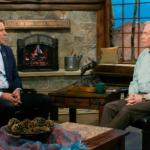The following is a guest post by Chris Estus. Chris is an “Aspiring Emergent.” He left the friendly local mega-church in 2011 to start Pioneer at Asbury – A worshiping community of people in, in need of or interested in recovery. He and his good Al-Anon wife Pat have lead the Pioneer Group since 2001. His worship CD – The Chris Estus Band can be sampled at www.thechrisestusband.com
I had my last drink of alcohol on July 24th 1999. I ‘ll spare you the details, but suffice it to say, I had enough. It had quit working. My ways of fixing me had quit working too. I went to AA the next day. There I found a community of people that immediately welcomed me and seemed to have a solution. I discovered that I was a sick person trying to get well, not a bad person trying to get good. They explained that I had a fatal, progressive illness with no known medical cure. But there was a solution. One day at a time, just keep coming back and drink this bad coffee and pray and follow direction and take the steps and try to help somebody and don’t drink and you won’t get drunk and life will improve. Seek God, Clean House, Work With Others. They were and are right. Since then I have been an active member of the fellowship and an active participant in my recovery and that of many others. I haven’t had a drink since I showed up and my life has improved exponentially.
A few months after sobering up, a recovery friend invited me to the local friendly Non-Denominational Mega Church. I loved the music, the atmosphere, the shiny everything. The motivational seminar attitude and vibe was hopeful and vibrant. I soon responded to an altar call, prayed the prayer, repented from not tithing all these years and went through the new members class. I quit the bar band, became a Contemporary Christian Praise and Worship Artist and joined a home group.
It was at the home group that I started noticing something troubling. About 10 of the home group members were alcoholics or addicts that had sobered up in AA or another 12-Step program. They all became active in church. They loved and studied and knew The Word. Somewhere in the process each of them had somehow convinced themselves that:
- Identifying oneself as an alcoholic or addict was a “negative confession” or a “word curse.”
- They were now “new creations.” All the old things had passed away etc. Alcohol and drugs had no hold on them. They were “no longer bound to sin.”
- Therefore, they no longer needed 12-Steps, they needed 1-Step – Jesus.
- Therefore, they didn’t need to be part of the program or go to meetings anymore.
The problem with this was that most of them had started drinking again, and they all did eventually. The good news is that after several divorces, treatment center stays and years of other punishment, all but one is back in recovery and sober today. The bad news is that Earl didn’t make it. He died drunk and took 5 more with him driving the wrong way up I-35.
It was then I decided that Christians really needed recovery.
About this same time I was in a meeting when a long-time member started sharing about spirituality and religion. He had grown up in a church-going family but was now more of a “New Thought” guy (Emmet Fox etc.). He still occasionally attended church. He told a story about being in his yard raking leaves when his charcoal grill caught his eye. He thought to himself – “If my son did something wrong or didn’t believe the right stuff, would I fire up the grill and stick him on there for eternity? No eff-ing way.” He went on to say he was convinced that church and religion were for people who were afraid of hell and recovery and spirituality were for people who had already been there.
It was then I decided that recovery people really needed to see Christianity from a new perspective.
After surveying the “Christian Recovery” options and finding them long on a certain “Christian” view and short on “Recovery”, my sponsors (mentors) and I decided to start The Pioneer Group in the summer of 2001. The meeting has met every Friday night at 7:15 ever since. It is an open study/discussion meeting. Members come from AA, Alanon, Narcotics, Cocaine, Overeaters, Sexoholics, S-Anon etc. Practicing Catholics, Protestants, Jews and those with no church affiliation are members. Other interested people with no recovery connection attend as well. They are always blown away by our transparency, our commitment to the program and the fellowship. They also get to see discipleship through sponsorship that lasts a lifetime in many cases.
We study recovery literature and the Bible. We read it out loud and discuss it in the style of a 12-Step meeting. We try to do so in English or Recovery talk, not Christianese. At first, many of us were learning to understand the Bible through the lense of our own experience and our understanding of the recovery literature. We soon began to also understand the recovery literature and our experiences through the lens of the Bible as well.
We are adamant that people don’t consider our group as a replacement for their regular 12-Step groups and meetings. God didn’t sober us up so we can hide under a lampshade and bless each other. We also encourage people to not use regular recovery meetings as a place to evangelize and sermonize. It isn’t appropriate or effective.
We have had some success in our spheres of influence. The Christians in my orbit have come around to understand why we identify the way we do, the disease concept and need for abstinence, the value of practicing the 12-Step program and going to meetings. My “spirtitual not religious” recovery friends are more accepting of the Christian roots of the 12 Step movement. They trust me as a “Spiritual Church Going Christian” who gets recovery and doesn’t preach at them.
Despite our efforts to bridge the gap between our “spiritual not religious” recovery friends and the church, many of them are reluctant to embrace Christianity in either its traditional or more contemporary practice or in doctrine. Resentment towards organized religion is a barrier to entry for some. However, most recovery people recognize resentment as the gateway to relapse, misery and death and therefore deal with it in the program.
The atheism and agnosticism of much of our culture is not much of a factor among my friends in recovery. Our very lives depend on the power of God. We all believe in Him and experience His Power.
The problem seems to me to be that many in recovery see their 12-Step programs and fellowships as their “church” and see no need or reason to embrace Christianity as now practiced in its traditional or contemporary form or doctrine.
Since stumbling into or upon the Emergent Conversation over the last few years, I have become convinced that it holds the key to bridging some of the gap.
I’ve become increasingly uncomfortable with and unconvinced of aspects of the prevailing Christian narrative. So much of it doesn’t line up with my experience in recovery and my understating of the Bible. For years I have intentionally avoided certain study notes in the Life Recovery Bible we use that hammer home some of these doctrines. Emergents are doing a wonderful service to all by holding up much of this entire narrative and its doctrines for examination.
The recovery movement points to an 80-year legacy of millions of people being transformed by the power of God. It offers a model of discipleship that often continues for decades and only works if the sponsees become sponsors themselves. You’ve got to give it away to keep it. We live by a set of principles (the Steps) that any follower of Jesus would do well to emulate.
The Emergent Conversation offers a compelling way to look at religion, the Church, Christianity and Jesus. It honors and does not ignore the Hebrew Scriptures and the Jewish Roots of the faith. It embraces the idea of “God as we understand Him” rather than the idea of “God as we say He is according to our 6-line narrative.” (Tip of the hat to Brian McLaren). Most “Christian Recovery” expressions attempt to fit the 12-Steps into the prevailing “Perfection, Fall, Condemnation, Salvation, Perfection or Eternal Conscious Torment” paradigm. Most churches attempt to present the Christian Faith along the same lines.
The Emergent Conversation affirms that Jesus instituted the Kingdom of God (Heaven) – HERE. The Emergent Conversation, like recovery, is “always inclusive, never exclusive, it is open, we believe to all…” to quote our Big Book. It asks questions and presents ideas about original sin, atonement theory, heaven and hell
We have started to look at the steps in light of emergent ideas. Here is an example. In July we had a meeting on Step 7 – Humbly asked to remove all these defects of character.
The scripture was Philippians 2:5-11. The discussion centered on humility and transformation in light of the Solidarity Theory of Atonement. God, through Jesus, totally understands our “defects” from the position of one who has experienced everything human including temptation, failure, foresakeness and death! He understands in the same way our sponsors understand our addiction, failure and foresakeness from actual experience. He and our sponsors demonstrate a way to live by humble reliance on and obedience to the Father.
Later that month we discussed Step 2 – Came to believe that a power greater than ourselves would restore us to sanity. This could have gone in the direction of “Because of Adam, I’m a piece of crap destined for eternal conscious torment if not for the love of a God that killed his son instead of me. If I take the steps, I’ll be pleasing to God and he will accept me and keep me sober. Also, if I pray the right prayer he’ll let me go to Heaven when I die”. Instead, we talked about the how the Bible starts in Genesis 1 not Genesis 3. We are already accepted as sons and daughters of God. Sobriety, transformation and abundant, eternal life are ours already. We take the steps to awaken to it.
I am in looking for partners in a dialogue regarding Recovery and Emergent ideas.
Recovery people and Emergents have much common ground from which to develop a dialogue. My primary purpose is to carry the message of recovery to those that still suffer. My hope is to be part of a dialogue that opens up the Church world to many of my friends in recovery.
If you would like to partner with Chris in this, please leave a comment for him. Also in the comments, share your experiences with 12 Steps and the church.















